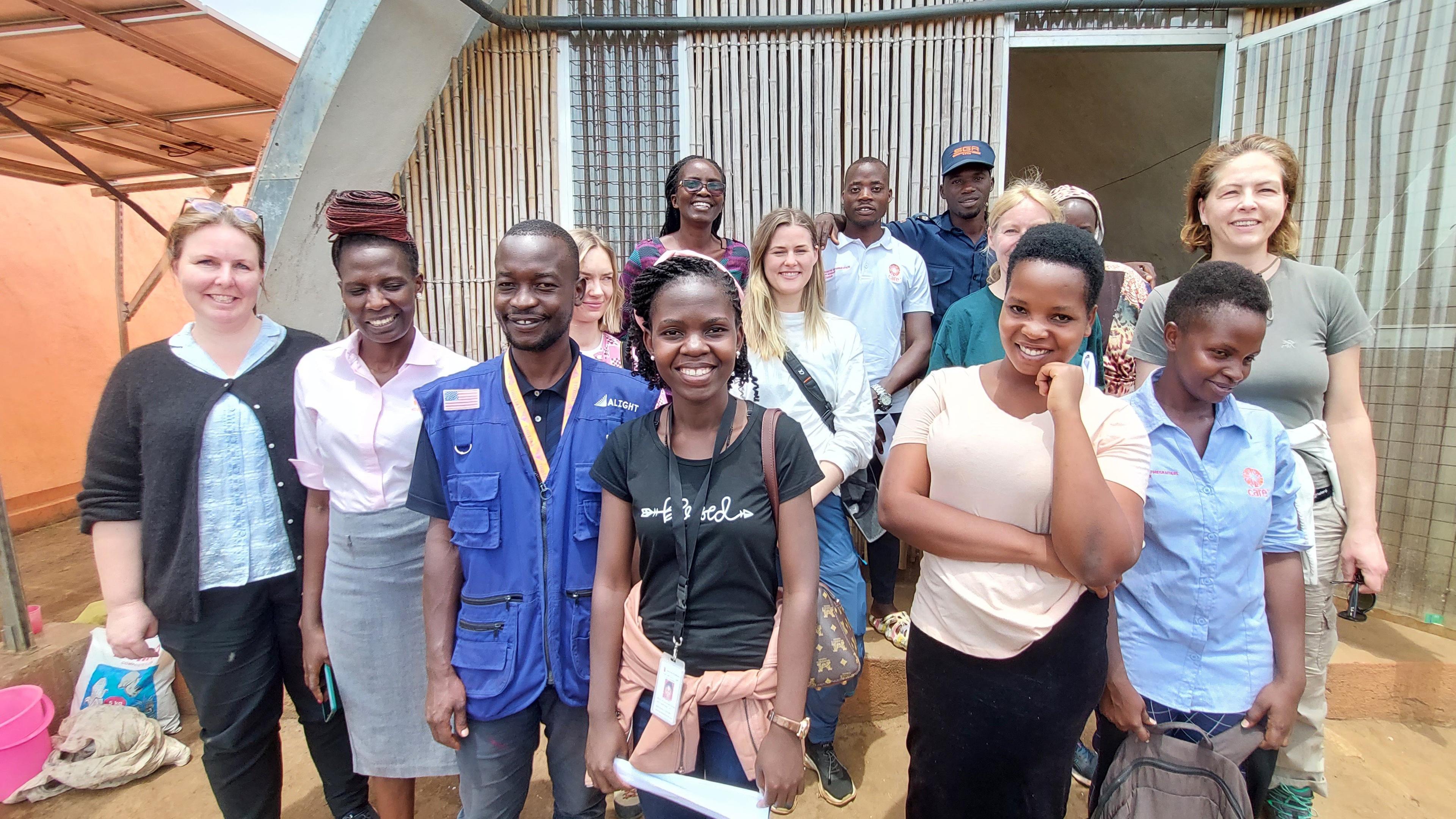Innovation Norway visits projects in Uganda
 © CARE
© CAREAddressing malnutrition with innovative partnerships
Arriving at our first stop, we found ourselves in Rhino refugee settlement in the northern part of the country. In this area, malnutrition and hunger is on the rise. To address these challenges, Response Innovation Lab and Save the Children, in collaboration with local companies, have tested four different innovations that are developed through human-centred design:
- A nutrient dense flour made of soy, orange-flesh sweet-potato, millet and sesame. The project participants have been trained on production and processing in addition to market linkages. This component is in partnership with Gulu University.
- The creation and scale up of sustainable and inclusive poultry micro-enterprises through provision of facilities for vaccination, improved access to feeds, and trainings. This is in partnership with Afema Ventures.
- A solar drying solution to promote dietary diversity through increased accessibility of fruits and vegetables throughout the year.
- Provision of technical trainings on better vertical farming practices for both Rhino camp & Kyaka II Refugee settlement through a vertical farms and micro greens project.
-The funding provided by Innovation Norway has enabled us to work together with the private sector on nutrition challenges for the very first time, says Immaculate Nampijja, project manager at Response Innovation Lab.
A model for repair and recycling of solar waste
Our second stop was in Bidi Bidi refugee settlement, close to the border of South Sudan. Here we visited a project lead by the International Organisation for Migration (IOM) in partnership with Aceleron, Solvoz, Bright Products and Total Energies. The project has developed a “Bat Lab” where used batteries are repaired and recharged. They have also established a repair centre, where broken solar lanterns are repaired and given back to their owners. The overall goal is to find a cost-effective solution to repair, reuse and recycle solar lanterns and solar home systems and their accessories that have been distributed in refugee settlements. The project has also put in place activities that create jobs, support livelihoods and provide business opportunities.
-Some people get rid of their broken solar lanterns by burning them or burying them. They are not aware that the smoke is toxic and that it contaminates the water. Now people are celebrating this project and regret that it hasn’t started earlier, says a one of the people who has been employed through the project.
Food security and access to clean cooking
After visiting the settlements in northern Uganda, our journey took us further south – to Kiryandongo refugee settlement. Here we visited the Food and Agricultural Organisation of the United Nations (FAO) who through this project has helped 8000 refugee and host community households to acquire energy-efficient multi fuel cook stoves, access to briquettes made from agricultural residues, quality seeds and fertilizers and training. The project is in collaboration with the social entrepreneur Mandulis Energy. It was fantastic to see how the farmers now could grow passion fruits and trade these at the local market, and that they had the opportunity to cook their food in a much more effective way that saved both time, health, trees and money for the people in the settlement.
Access to clean cooking is an immense challenge in humanitarian action, which needs to be tackled from different angles. Women spend hours every day collecting firewood putting them at risk for gender-based violence, they face serious lung issues because of the smoke from the fire, and it is a big strain on the environment as forests are cut down. CARE, is another organisation that is tackling this problem. Together with their partner Pesitho, they have implemented communal kitchens that run 100% on solar energy in Kyangwali refugee settlement. This settlement in the western part of Uganda was our final stop. Here, they receive refugees from DR Congo every single day. We visited a communal kitchen in one of the reception centres, and an industrial sized school kitchen.
-I am so happy that my eyes don’t run while I cook, and that my lungs don’t hurt anymore, thanks to the solar kitchen, says one of the women in the reception centre.
Key take aways
The mission to Uganda was filled with many impressions, learnings and valuable discussions with humanitarian organisations, private sector partners, refugees, host communities and local government. A key take-away from the mission is that pilot projects that have developed solutions in close collaboration with affected people manage to meet the real needs of the users which supports the successful uptake of the innovation. However, we see that the wider implementation and scaling remains a core challenge in this environment that faces a severe funding gap. To support the wider scaling of the innovations there is a need to:
- Develop and test new business models that can support the financial sustainability of innovations over time
- Support each other in scaling existing innovations
- Think scale from the start of every innovation project
- Develop new tools and knowledge around business models and successful routes to scale
- Grow solid partnerships with relevant stakeholders
We look forward to continuing to support organisations with access to risk-willing funding, advice and networks. We will also continue to develop tools and resources that can help the organisations on their way to implementing and scaling impactful innovations in partnership with the private sector.